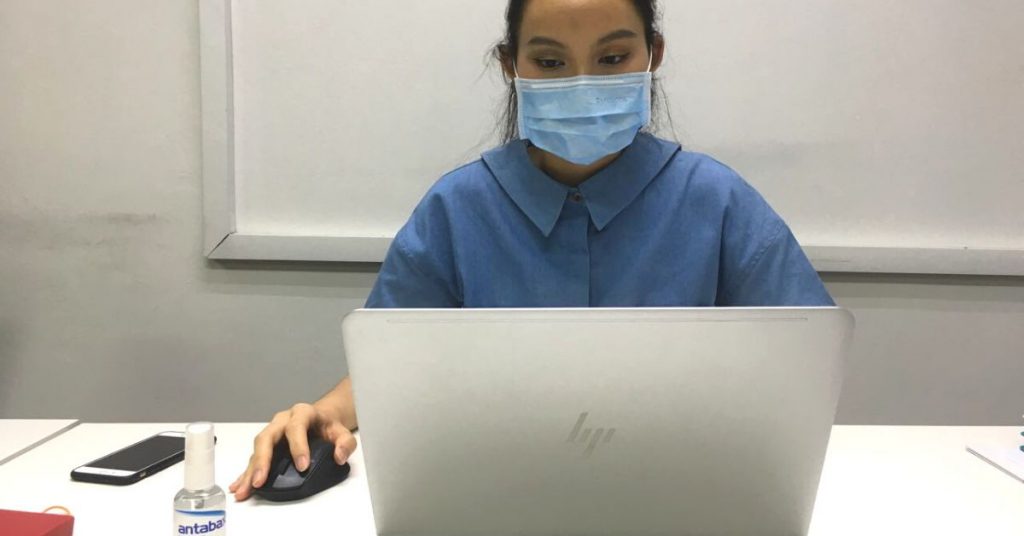Just this morning, it was reported that there were 3 new confirmed cases of coronavirus infections in Malaysia, bringing the total number of cases up to 7.
Across the world, there are now 6,052 confirmed cases and a total of 132 deaths (within China alone) in just a few weeks.
Similar to influenza, coronavirus can be spread through sneezing, coughing, touching an infected person or objects that have been touched by an infected person and then touching your own orifices.
Anyone who’s a little more cautious has probably taken the liberty to stay indoors at home and avoid crowded places when going out.
Unfortunately, some of us who are employed may not be able to do as such, and companies should be taking precautions as well to ensure that the workplace and their employees are free of coronavirus.
In my opinion, here are some steps businesses should be taking to remain proactive and cautious in the midst of the outbreak.
1. Get ‘Em Educated
Employers should take the initiative to compile reputable sources that can provide information on coronavirus (symptoms, how it spreads, prevention, etc.), as some employees may not bother to do so themselves.
However, it’s advised that employers do not give out their own medical opinions or misinformation that may incite unnecessary panic amongst employees.
And while providing employees with the necessary tools to protect themselves from coronavirus is key, there’s next to no point in doing so if employees don’t know how to use them, so employers can hold a short demo to showcase the proper use of face masks, for example. (Coloured side facing out, white side facing in, by the way.)
2. Arm Them With The Necessary Infection-Fighting Tools
You could tell your employees to wash their hands more or wear face masks all you like but the best way to make sure they actually do it is to provide them with said hand soap and face masks.

In our own office, our boss graciously brought us face masks, made sure we had lots of hand soap and hand sanitiser to keep ourselves clean and protected.
This is important within the office, but for employees in lines of business such as deliveries, providing them with these is even more important so they can stay safe on the go.
For something a little extra, stocking your office pantry up with some vitamins and over-the-counter preventive meds is nice thought too.
3. Allow Working From Home
If the work that your employees do doesn’t require them to work together in person much, you could let them work from home for a while.
Of course, you could set certain guidelines like having to clock in and out their hours in the company group chat (it’s common courtesy, anyway) when they’re working from home.

This could put some slightly more paranoid employees at ease, and you can minimise potential contamination of the office during the outbreak.
Various large companies overseas have already asked their employees to work from home instead of coming into work, and the Malaysian Trades Union Congress (MTUC) has already called upon employers to offer employees work flexibility.
4. Spring Clean The Office…As Often As Possible
If your office has the privilege of having in-house cleaners that can clean anytime, that’s great!
For those of us without, we have to make do with keeping our personal and shared spaces in the office clean on our own.

Disinfecting desks, shared tables and seats, the water cooler, and washing any shared utensils properly before and after use can help lower the risk of spreading anything.
5. Keep Your Employees In The Country (Or State)
For larger companies that usually send employees out of the state or country for work, now’s probably not the best time to keep doing so, and large companies like Facebook, Razer and LG have outright restricted employee travel to China.
If you already have employees overseas who are coming home soon, you should advise them to get a health check-up before returning to the office (and allow them to claim the expenses from the company, if that’s not already the standard).
Specifically, in the case that any of your employees are returning from China, the health check should be mandatory.
6. Suit Up If You’re In F&B
For those working in the F&B sector, a simple face mask and hand soap isn’t quite enough as you’re always in contact with food for customers.
I believe that it’s extremely important that all your employees maintain good hygiene and are given the appropriate gear for food handling like hairnets, gloves (that are changed regularly), face masks or spit guard masks, clean aprons, etc.

This is so that any sick employee with still-hidden symptoms won’t pass on the virus to customers.
If you suspect that an employee may be unwell, you should send them home immediately and disinfect the place (especially in areas where food is prepared) before resuming operations.
Additionally, you should make sure your premises are decently equipped with hand soap and sanitisers for customers, and the area is always cleaned properly each day, as often as possible.
7. Monitor The Situation At All Times
Nonetheless, while you may have taken all the necessary precautions, there still may be a chance that one of your employees falls sick anyway.
So, employers should familiarise themselves with and understand the symptoms of coronavirus infection, keep an eye on employees (especially those who are known to have weaker immune systems), and reinforce sick leave policies.
If you suspect an employee is sick, you should speak to them in private and ask them to take a medical leave to visit a doctor and recuperate.
















